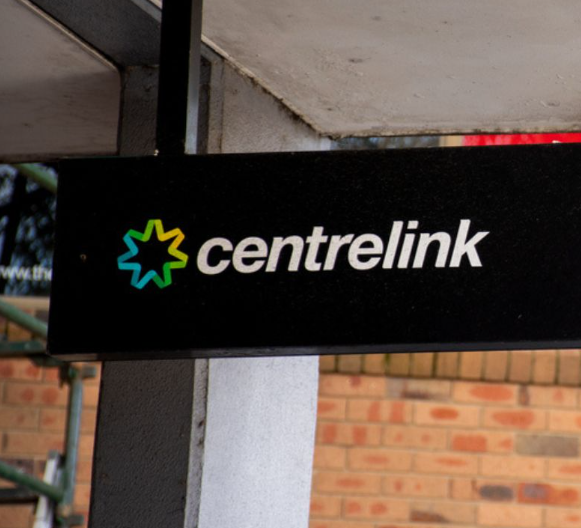
Jane thought she was safe.
She had the paperwork confirming she was exempt from job agency meetings.
But when Centrelink’s computers failed to recognise it, her payments vanished overnight.
When Jane from Melbourne enrolled in a government program to start her own business in 2021, she believed she was on solid ground.
She had been told in writing she did not need to attend job agency meetings, yet her phone still buzzed with persistent calls and texts from her employment provider.
Ignoring them should not have mattered, but Centrelink’s automated system cancelled her payments anyway.
She suddenly found herself relying on bread, cereal, and flour for homemade muffins to survive in public housing.
Jane’s struggle was not an isolated case.
New analysis from Economic Justice Australia revealed that around 310,000 Australians had their Centrelink payments unlawfully cancelled between 2020 and 2024 because of a flaw in the automated mutual obligations system.
The scale of the cancellations
The official numbers told a far smaller story.
The Department of Employment and Workplace Relations previously admitted that 964 people had their payments unlawfully cancelled, before later acknowledging 1,326 cases of ‘financial penalties being applied incorrectly’ due to an IT error.
Yet, the independent analysis showed the true figure was hundreds of times higher.
The illegal cancellations were not limited to JobSeeker recipients.
Youth allowance, parenting payments, and even disability support pensions were all affected, impacting families who relied on this money—including seniors whose adult children depended on it.
The 28-day safeguard ignored
The heart of the problem lay in a simple legal safeguard.
By law, payments could not be cancelled until 28 days after a person missed a mutual obligation.
The grace period existed to protect people facing illness, family crises, or simple misunderstandings about requirements.
But Centrelink’s system ignored the rule, stripping people of income before the legal period expired.
Understanding the 28-day rule
- You have 28 days after missing an obligation before payments can be legally cancelled
- Employment providers don't have to check why you didn't engage during this period
- The automated system was ignoring this legal protection
- If your payment was cancelled sooner, it was likely illegal
For Jane, the consequences were immediate and crushing.
Her payments were cut in late 2020, leaving her with just $800 in savings to cover months of bills.
‘I didn't pay my power bills, I didn't pay my rent, I just couldn't afford to pay it,’ she said.
She tried to appeal but gave up, overwhelmed by bureaucracy and financial pressure.
She was one of nearly one million people who faced compulsory mutual obligations under Workforce Australia and Disability Employment Services in 2025.
Each case represented a life balanced on the reliability of a computer system.
A pattern of system failures
This was not the first time technology had failed welfare recipients.
From January 2025, repeated IT problems forced the government to extend pauses on compliance activities day by day, leaving 900,000 people in limbo.
Then in May 2025, a separate glitch generated false debt notices of $2,356 for thousands of Centrelink recipients after a software update malfunctioned.
Though swiftly labelled an error, it deepened concerns about reliability.
The government eventually paused payment cancellations in July 2024, but suspensions continued.
Between January and April 2025 alone, there were 157,680 suspensions.
Several reviews were underway, including a $439,142 Deloitte investigation due in May 2026 .
Meanwhile, advocacy groups such as Community Legal Centres Australia and Economic Justice Australia demanded the immediate suspension of the entire Targeted Compliance Framework.
People affected were urged to check records of cancellations between 2020 and 2024, keep correspondence proving exemptions or reasonable excuses, and seek advice from legal or financial support services.
The government response
Economic Justice Australia estimated about 20 per cent of people could qualify for remediation.
Although no class action had been launched, litigation was on the table.
Employment Minister Amanda Rishworth avoided direct answers when asked about the findings.
She stated only that the department had ‘assured’ her issues were ‘quickly paused’ once identified.
For many, that assurance did not match the scale of the damage.
A Workforce Australia Employment Services report had already described the compliance framework as ‘excessive’ and ‘very punitive’ with little evidence it helped people back into work .
One community legal centre spokesperson summed it up: ‘It is impossible for the public to have any trust in the Government if systems put in place to protect people are found to be deficient, and we continue to receive revelations of unlawful practice’.
From Robodebt to this new scandal, the message was clear—computers must never be allowed to make decisions that even humans are not legally permitted to make.
What This Means For You
Centrelink’s automated system unlawfully cancelled 310,000 payments between 2020 and 2024, leaving countless Australians struggling without warning. The law was clear—a 28-day grace period had to be honoured before cancelling any payment—but the system ignored it entirely. On top of this, repeated IT failures have caused chaos, from false debt notices to mass suspensions that pushed already vulnerable people into financial stress.
Reviews and possible legal actions are now underway, but community advocates are calling for the compliance framework to be scrapped altogether. For anyone who has ever relied on these payments to keep a roof over their head or food on the table, the message is clear—what happened here was not just a technical error, it was a direct threat to financial security and trust in the system meant to protect you.
Payment errors and unlawful cancellations are not the only issues causing stress for people who depend on Centrelink and related services.
Alongside system flaws, there are also growing risks outside the government’s control, with scammers targeting those who rely on welfare payments and essential benefits.
One recent warning highlights just how sophisticated these scams have become, showing the importance of staying alert to both official errors and criminal activity.
Read more: Centrelink and Medicare warn Australians of new data scam risk
More than 300,000 Australians had Centrelink payments cancelled illegally, new analysis shows — Independent analysis by Economic Justice Australia revealed 310,000 unlawful cancellations between 2020 and 2024.
https://www.theguardian.com/austral...yments-cancelled-illegally-new-analysis-shows
Centrelink mutual obligations scheme paused amid scrutiny on ‘failing systems’ — DEWR investigations uncovered unlawful cancellations, prompting pauses and external review.
https://www.inkl.com/news/centrelin...cheme-paused-amid-scrutiny-on-failing-systems
IT outage chaos: “Mutual” obligations must be suspended to stop distress and confusion for welfare recipients — Nearly one million people are subject to compulsory obligations, with IT failures disrupting the system.
https://apcentre.substack.com/p/it-outage-chaos-mutual-obligations
IT outage chaos: “Mutual” obligations must be suspended to stop distress and confusion for welfare recipients — Since January 2025, daily IT issues forced rolling pauses, leaving 900,000 people uncertain about payments.
https://apcentre.substack.com/p/it-outage-chaos-mutual-obligations
Centrelink $2356 Technical Fault Leads to False Suspension Notices – Glitch Hits Multiple Accounts — A May 2025 backend software error sent false $2,356 debt notices to thousands of recipients.
https://hotelatithiguwahati.in/technical-fault-leads-to-false-suspension-notices/
Centrelink $2356 Technical Fault Leads to False Suspension Notices – Glitch Hits Multiple Accounts — Thousands of users received false suspension warnings and debt notices due to a uniform system error.
https://hotelatithiguwahati.in/technical-fault-leads-to-false-suspension-notices/
Centrelink mutual obligations scheme paused amid scrutiny on ‘failing systems’ — Deloitte launched a $439,142 external review in 2024, with findings expected in May 2026.
https://www.inkl.com/news/centrelin...cheme-paused-amid-scrutiny-on-failing-systems
Media release: Community legal centres join calls for immediate suspension of mutual obligations penalties – CLCs Australia — Advocacy groups demanded suspension of the Targeted Compliance Framework.
https://clcs.org.au/media-release-suspend-mutual-obligations/
Major Centrelink changes coming for millions of JobSeeker recipients — A Workforce Australia report called the compliance system ‘excessive’ and ‘punitive’ with little evidence of effectiveness.
https://au.finance.yahoo.com/news/m...llions-of-jobseeker-recipients-220836345.html
Media release: Community legal centres join calls for immediate suspension of mutual obligations penalties – CLCs Australia — Legal advocates said government trust is impossible amid repeated unlawful practices.
https://clcs.org.au/media-release-suspend-mutual-obligations/
Losing access to essential income overnight can push people into crisis—how can trust ever return when the very systems meant to protect them are breaking the law?
[/blockquotecontent][/blockquotecontent]






